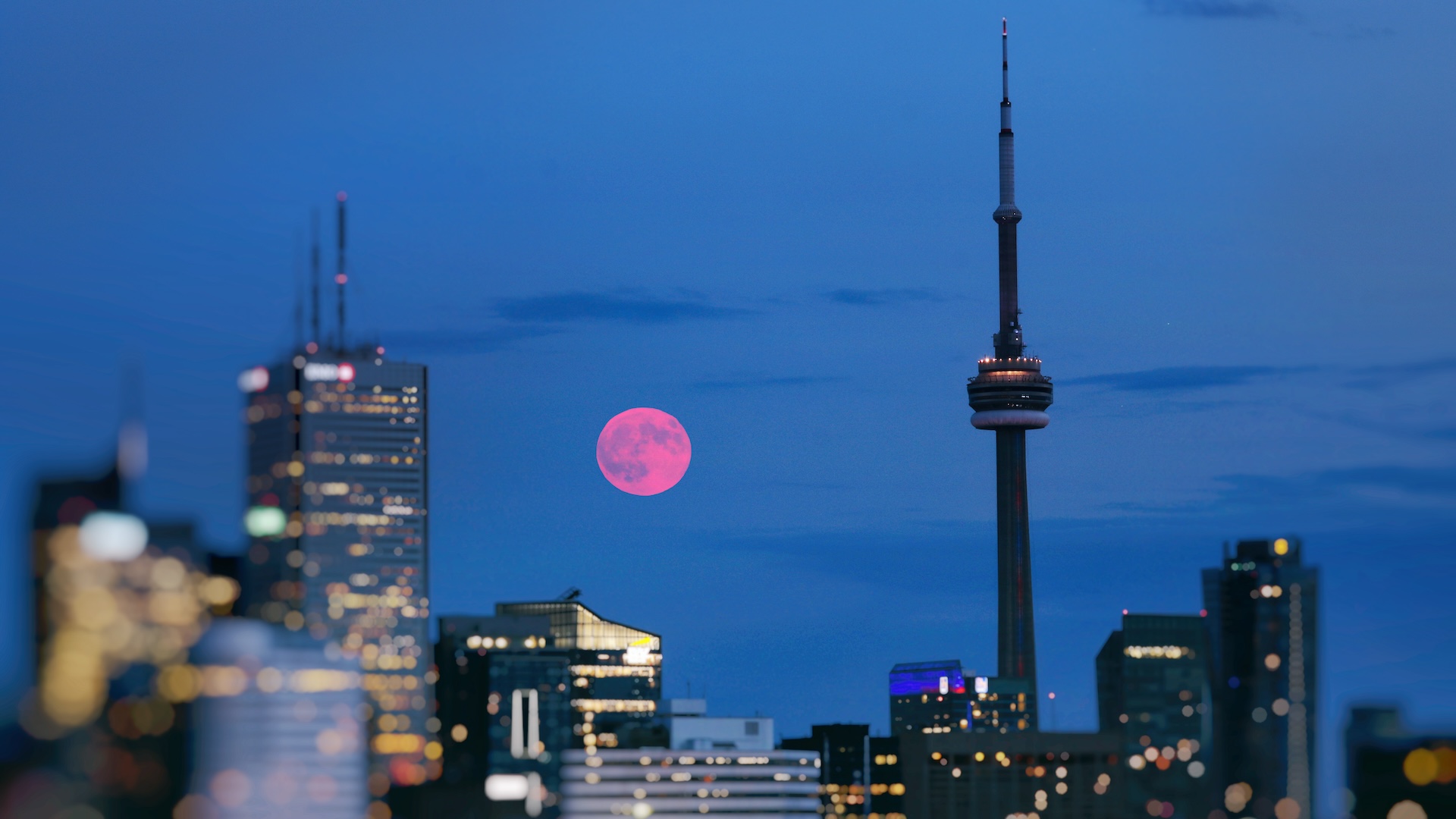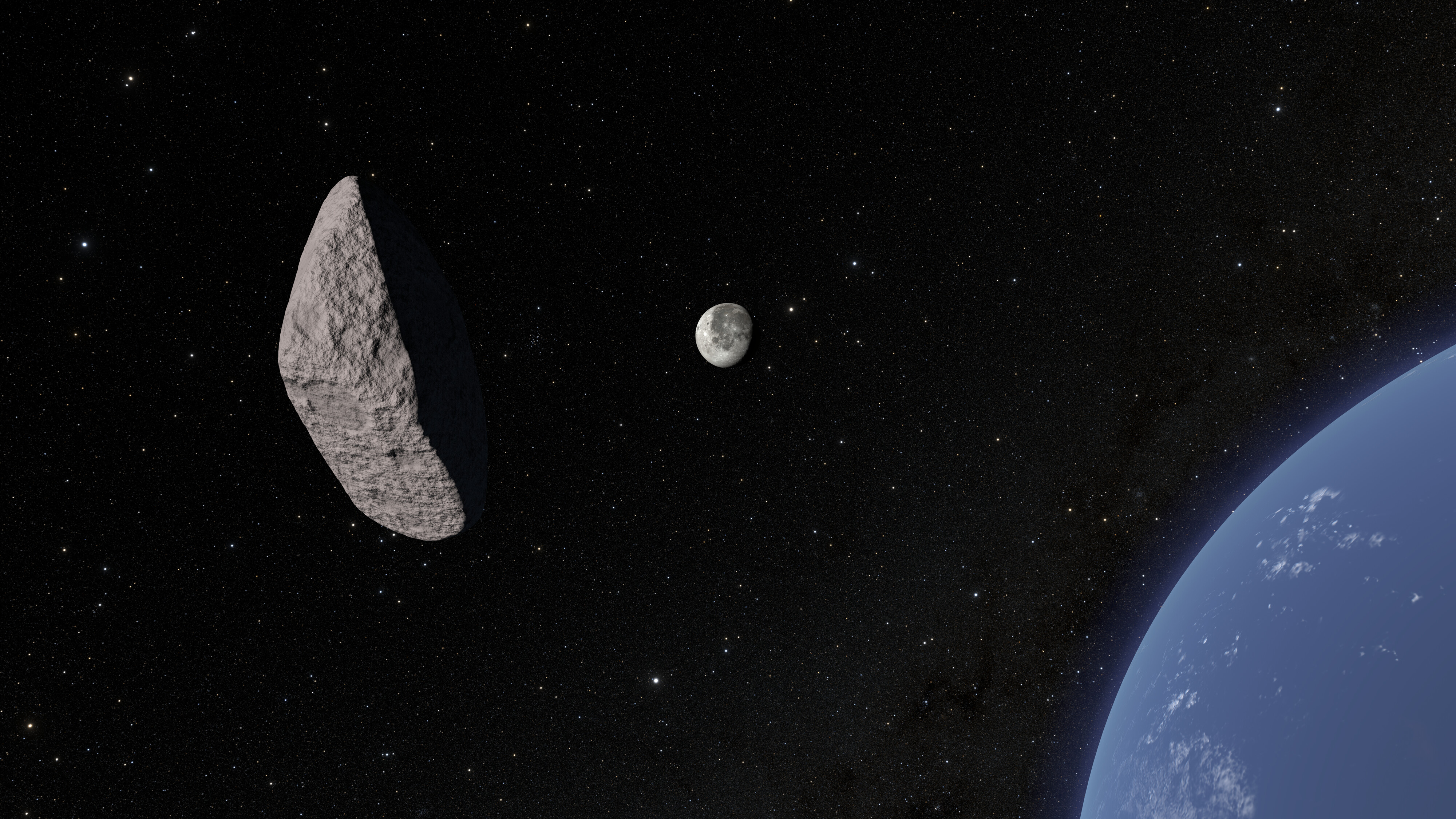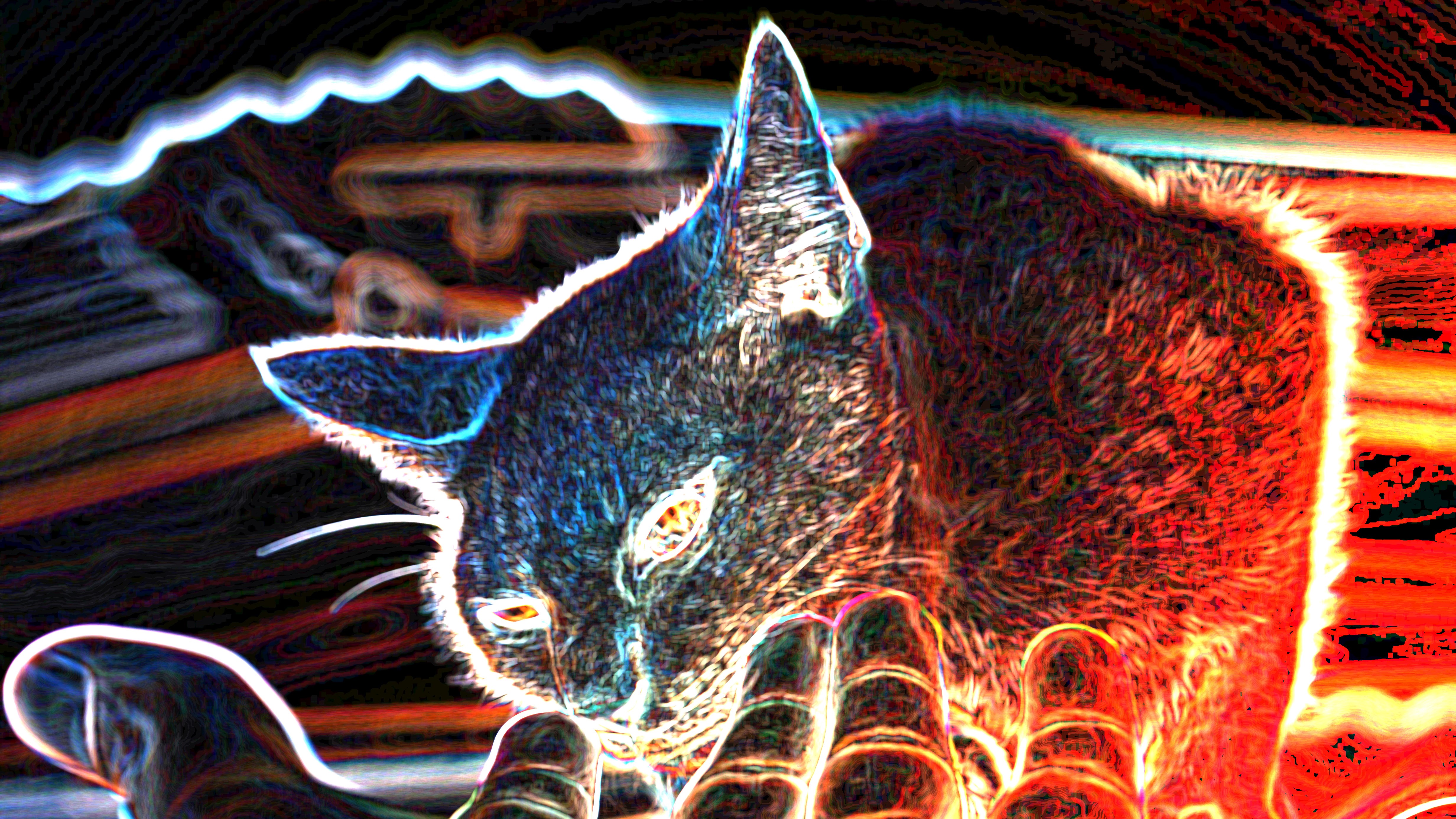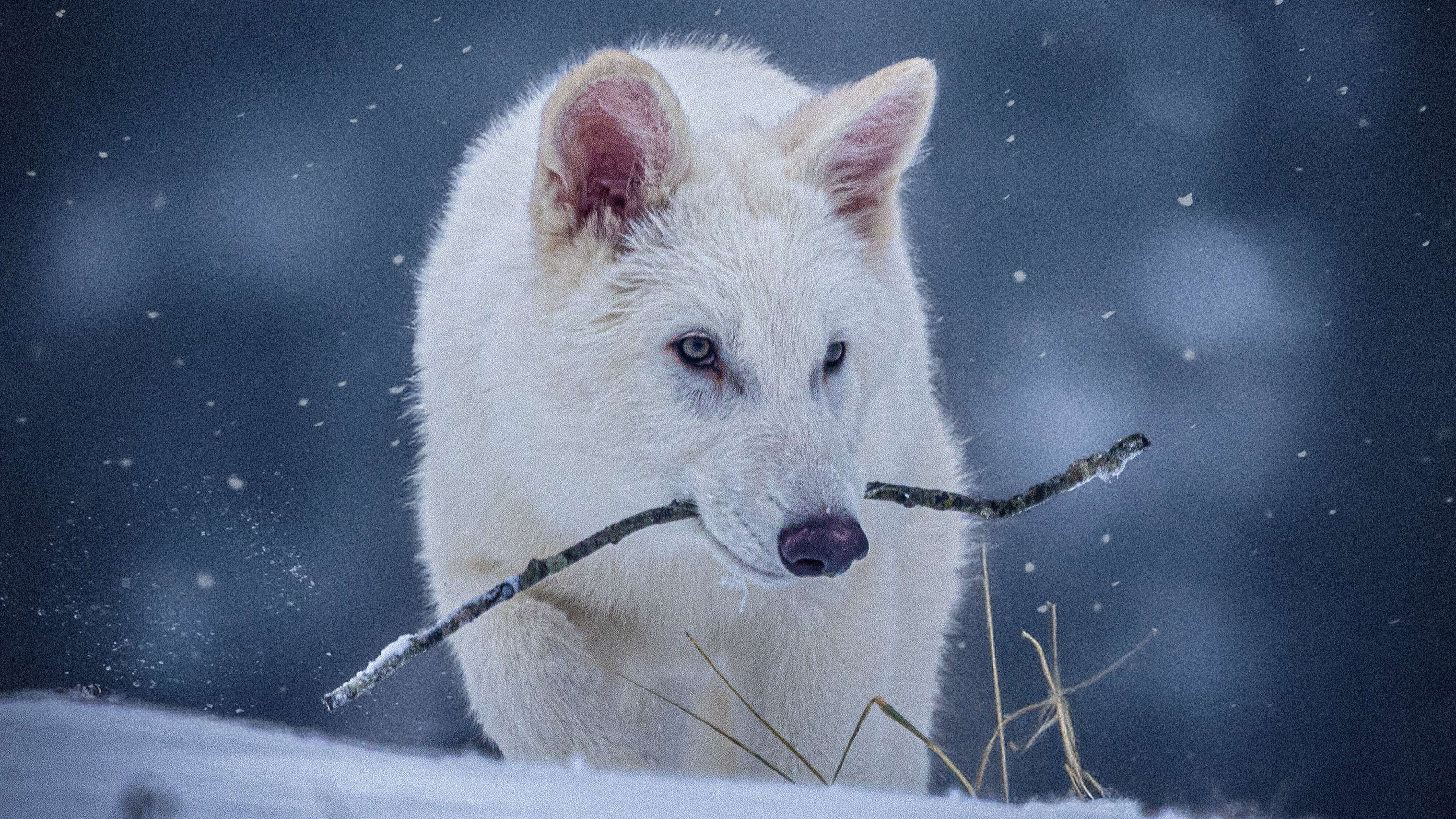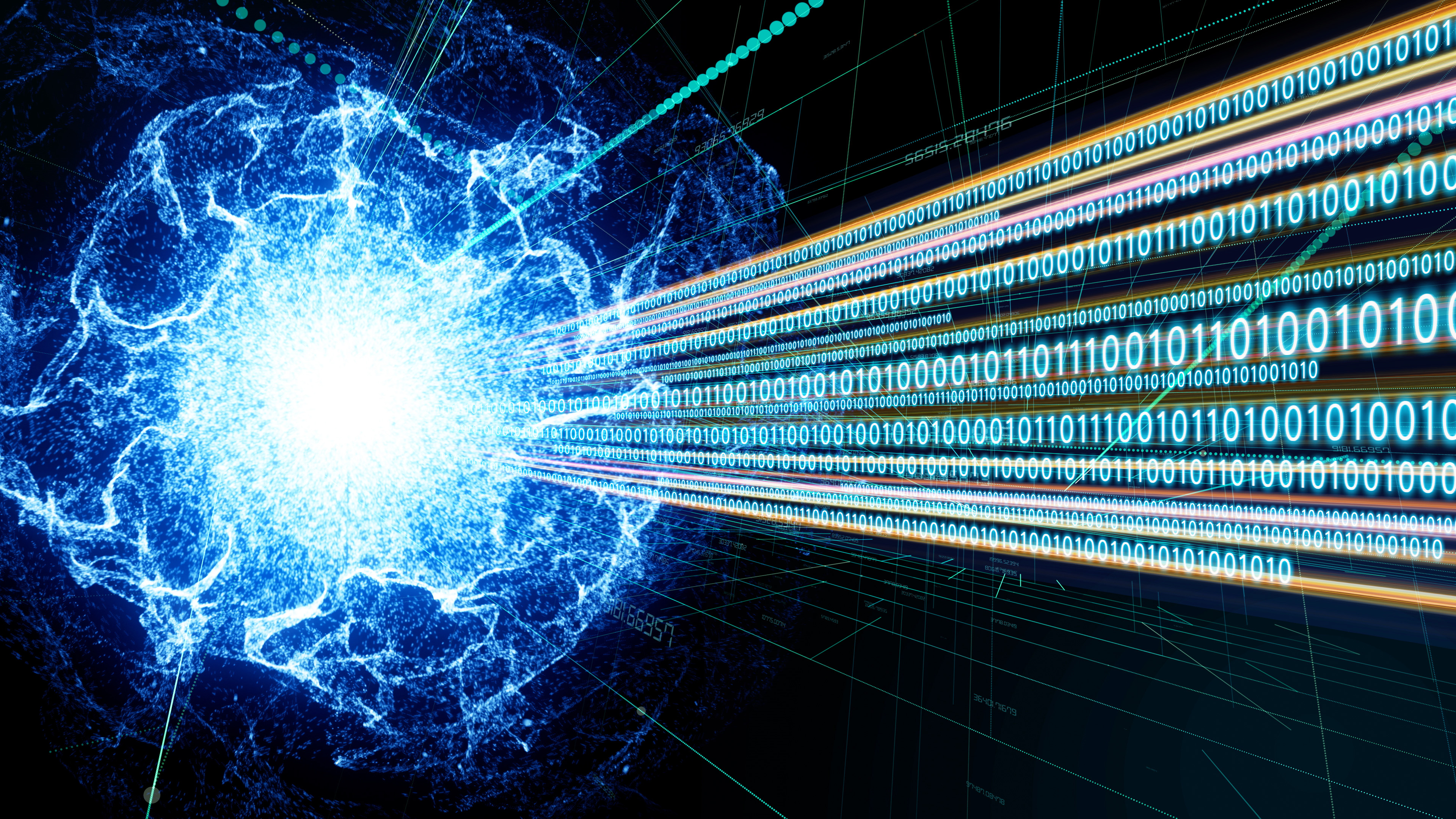Why the Full Moon Makes Scorpions Glow In the Dark
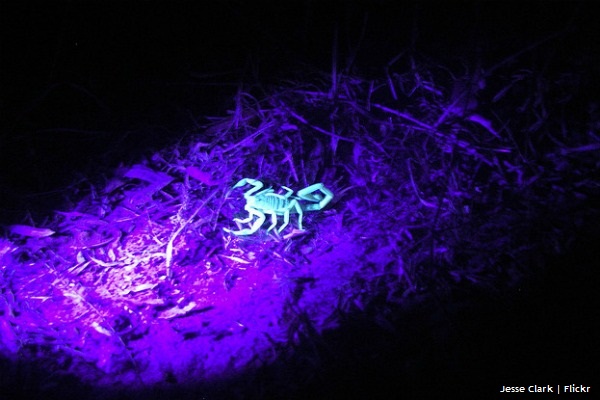
The horror, the horror: As if scorpions weren't frightening enough, when illuminated by ultraviolet rays from a black light, the armored arachnids glow an unnatural neon blue. UV light that hits these creepy crawlies gets converted by proteins in their exoskeletons into light of a blue hue, which is visible to the human eye.
Scorpions are already outfitted with armor, pinchers, and painful and poisonous stingers, so one has to wonder: Is glowing in the dark really necessary? [Photographic Evidence: The Grossest Things]
Actually, arachnologists have spent untold hours trying to answer that very question. What, they wonder, is scorpion fluorescence good for?
Some say glowing might help scorpions find each other; their earth-tone coloring makes them otherwise difficult to spot in the desert. Others think they do it to dazzle prey. Alternatively, the light conversion effect could act as a sunscreen. Upon experimental investigation, however, none of these hypotheses hold up to scrutiny, leading some arachnologists to speculate that scorpion fluorescence has no function at all. Perhaps, they say, it's just a random act of evolution.
California State University arachnologist Carl Kloock thinks otherwise. Over the past few months, Kloock and his colleagues have started unraveling the mystery of why scorpions glow.
"They may be using UV as a way to determine whether or not to come to the surface to look for prey, based on the light levels," Kloock told Life's Little Mysteries, a sister site to LiveScience.
Scorpions are nocturnal creatures. They abhor the heat and evaporative effects of sunlight, and it turns out they specifically avoid UV light too. In a recent issue of the Journal of Arachnology, the Cal State team reported that the arachnids adjust their activity level depending on the amount of UV shining on them. When flooded in UV, they are less active than when lights are dim.
Sign up for the Live Science daily newsletter now
Get the world’s most fascinating discoveries delivered straight to your inbox.
"My thinking at this point for why they would respond to UV is that there is a UV component in moonlight," Kloock wrote in an email. If scorpions are hungry, he explained, they'll come out and hunt regardless of light levels. But if they're satiated, research shows they tend to lie low on moonlit nights, especially around the time of the full moon. "[Fluorescence] may be part of the mechanism by which the scorpions respond to moonlight," Kloock wrote. He is preparing a follow-up experiment to test the idea directly.
Perhaps, to the great satisfaction of scorpion scientists everywhere, the question of why scorpions glow under UV light may finally be getting answered. As for everyone else — especially people who live around deadly species of scorpions — their fluorescence allows for a very different sort of satisfaction. By patrolling the house with a black light, you can easily find and kill them.
This article was provided by Life's Little Mysteries, a sister site to LiveScience. Follow Natalie Wolchover on Twitter @nattyover.
Natalie Wolchover was a staff writer for Live Science from 2010 to 2012 and is currently a senior physics writer and editor for Quanta Magazine. She holds a bachelor's degree in physics from Tufts University and has studied physics at the University of California, Berkeley. Along with the staff of Quanta, Wolchover won the 2022 Pulitzer Prize for explanatory writing for her work on the building of the James Webb Space Telescope. Her work has also appeared in the The Best American Science and Nature Writing and The Best Writing on Mathematics, Nature, The New Yorker and Popular Science. She was the 2016 winner of the Evert Clark/Seth Payne Award, an annual prize for young science journalists, as well as the winner of the 2017 Science Communication Award for the American Institute of Physics.

